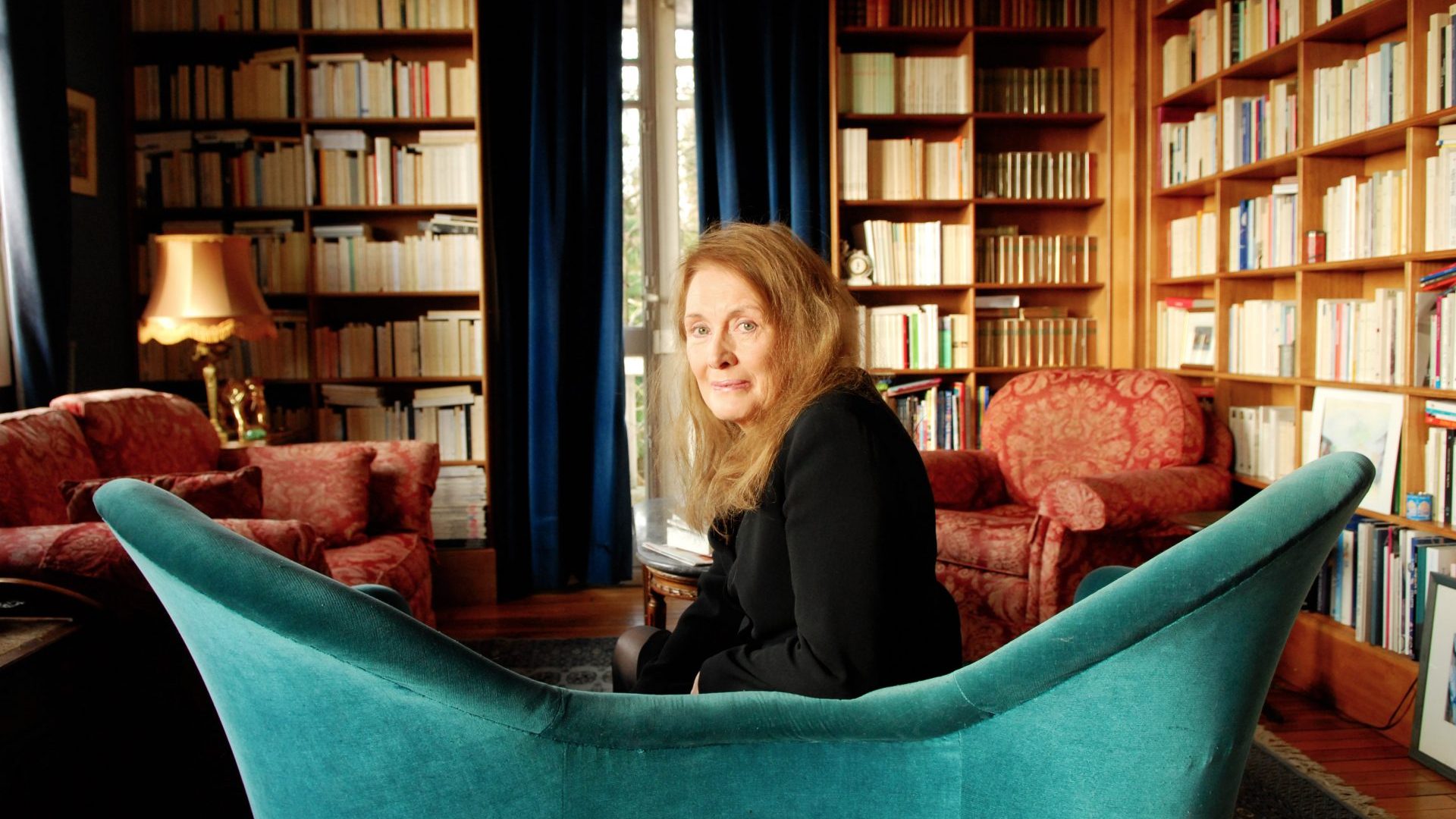When Annie Ernaux was announced last Thursday as the winner of this year’s Nobel prize for literature it took a while to find her. Having made the announcement, the Nobel committee’s permanent secretary Mats Malm conceded they had not yet been able to track down the author but he “expected her to become aware of the news soon”.
It was a fitting moment for an author who has always gone about her business quietly and unassumingly while writing books of blistering honesty that distil universal truths and experiences into slim volumes born of her own experiences.
As the world waited for her, the tributes began. Nobel committee chair Anders Olsson described how Ernaux “consistently and from different angles examines a life marked by strong disparities regarding gender, language and class,” while the mayor of Paris Anne Hidalgo said that the 82-year-old’s books “lifted the veil on the intimacy of women with great modesty, but without embellishment”.
Even Emmanuel Macron, of whom Ernaux is certainly no fan, weighed in, praising how she “has been writing for 50 years the novel of the collective and intimate memory of our country.”
First published in the mid-1970s, Ernaux has produced more than 20 books, most of them volumes of memoir that have made her one of France’s most celebrated contemporary literary figures. It’s only in recent years that her work has become available to the English-speaking world – credit is certainly
due to her UK publisher Fitzcarraldo Editions who have persistently beaten
the Ernaux drum by producing excellent translated editions – but she’s long been spoken of as a potential Nobel laureate.
That’s not to say her award this year wasn’t a surprise as most commentators were convinced it was destined for Salman Rushdie following the attempt on his life. Yet it’s somehow fitting that Ernaux should have emerged almost unnoticed from the shadows of eminent men to scoop global literature’s most prestigious title.
Eventually, the woman herself came blinking into the spotlight, walking apprehensively into a room full of journalists at the Paris offices of the
prestigious French publisher Gallimard.
“I am very moved,” she said. “For me, this represents something huge, on behalf of those I come from”.
The people she comes from are a long way from the high-ceilinged, gold-leaf opulence of Gallimard and the literary salons of the French capital. The product of one of the many factory towns across France, Ernaux is one of only 17 women to have won the Nobel prize for literature since its inception in 1901. Winners drawn from outside the privileged classes are even fewer in number.
She was raised in the Normandy town of Yvetot, close to the River Seine a few miles east of Le Havre, where her parents, former factory workers, ran a café-épicerie in a working-class part of town. At the dawn of the 1960s, she spent six months as an au pair in Finchley before returning to France, obtaining a teaching qualification and going on to earn a doctorate in modern literature in Bordeaux with a thesis on the work of André Malraux.
She met her husband Philippe at university, had two sons then worked for 23 years teaching at the Centre National d’Enseignement par Correspondance, a higher-education establishment similar to the Open University, until her retirement at the turn of the millennium.
This would have been a life of achievement worthy of any meritocracy, but as well as earning academic success and building a successful career Ernaux was all the time honing what would become a famously spare, concise writing style.
Like many writers from a working-class background she started out almost ashamed of expressing herself on paper. Her first book, the novel Les Armoires vides, published in 1974 (and later in English as Cleaned Out), was
written in secret, nobody knew about it, not even the husband who had laughed at her when she tentatively mentioned writing fiction. When the
book was published by Gallimard, France’s leading literary publisher, instead of being proud Philippe was furious.
“He told me, if you’re capable of writing a book in secret then you’re capable of cheating on me,” she said. By the time her third book was published they were divorced.
For years she fitted her writing around her day job. In announcing her Nobel win, Olsson said that her “path to authorship was long and arduous”. What he meant was her path to full-time authorship was long and arduous. Ernaux had already been writing for more than a quarter of a century when she retired from the Centre National and was able to focus exclusively on her books.
Olsson’s comment betrayed the difference between the world Ernaux came from and the world the literati inhabit, one of authors independently wealthy enough to devote themselves to their art. Ernaux did not have that luxury. She produced extraordinary books written around her working day, around running a household of four people, around being a mother of two, exactly the kind of struggles that informed her writing.
“To receive the Nobel prize is, for me, a responsibility to continue,” she said last week. “Speaking from my condition as a woman it does not seem to me that we women have become equal in freedom, in power.”
She was driven from early in her career to write about her setbacks and traumas. Her books are raw and honest, ranging in subject matter from the backstreet abortion she had in 1963 when abortion was still illegal in France, witnessing as a child her father attacking her mother with a knife, her breast cancer, her mother’s dementia and an affair she had with a Russian businessman ten years her junior (presumably the book that prompted the Times to give its report of her award the sniffy headline “French chronicler of her sex life wins Nobel prize”).
Intensely personal as they are, Ernaux’s books are never self-indulgent or gratuitous but chronicle experiences that resonate with readers. They are histories of her times as much as stories of her life. She even described her 2008 book Les Années, published in the UK in 2018 as The Years, as a “collective autobiography”, being a memoir of the first 66 years of her life alongside the story of France in the same period.
Unlike most memoirs, The Years is written in the third person and first person plural, using “she” or “we” but never “I”, and includes photographs, song lyrics and old magazine advertisements to jog the collective memory and help immerse the reader in the story. One reviewer called it “a Remembrance of Things Past for our age of media domination and consumerism”.
It’s hard to single out one book in particular as her masterpiece but The Years, which was shortlisted for the 2019 Man Booker International Prize, is arguably her best work. Certainly, it’s a good place to start for those new to Ernaux.
Her account of her mother’s decline and death from Alzheimer’s disease, Je ne suis pas sortie de ma nuit, published in English as I Remain in Darkness, is as close to a typical Ernaux book as any. It’s short, stretching to barely 70 pages, but written so sparingly the reader still has a sense of gradual decline over a period of years. Her skill is in making such an intensely personal experience a shared one, writing in a voice simultaneously attached to and detached from the situations she describes.
“When she’d had enough of her brioche she hid it under her skirt,” she wrote of a visit to her mother. “As a child I would steal sweets from the shop and stuff them inside my underwear.”
Few writers can strip down their prose like this and still achieve a deep emotional impact. It takes craft and confidence to trust the reader to fill
the spaces in between with their own imaginations. She takes life’s traumatic moments and turns them into quiet roars of defiance, angry and calm, poignant and raw, empathetic and unapologetic. Simultaneously dispassionate and emotional, Ernaux’s work somehow speaks for all of us as
much as it speaks for her.
“Doubtless I am, in the crowded streets and shops, a surrogate for other people’s lives,” she wrote as the last line to her gallimaufry of everyday encounters, Exteriors.
It’s as if she’s carving each sentence on to the surface of a table with a knife,” the New York Times once said of Ernaux’s work. “She is, in her writing, definitely not the sort of girl whose bicycle has a basket.”
It has been a remarkable journey from the factory towns of Normandy to the Nobel prize, but from the very beginning the desire and ability to write have been there at the core of Ernaux’s being. As well as being dismissive of her need to express herself in words, her husband was also serially unfaithful, of which Ernaux was forgiving on the grounds that Philippe didn’t possess any kind of creative urge.
“What else is there to do when you don’t write?” she shrugged. “Just eat, drink and make love.”




